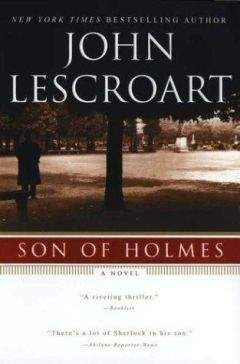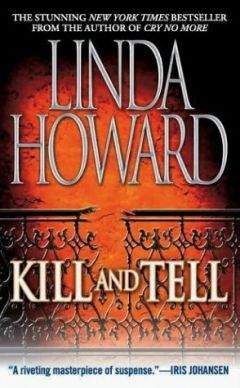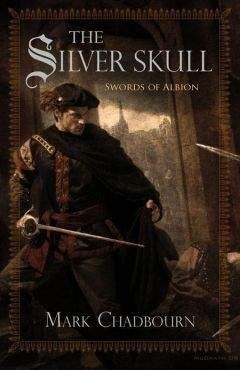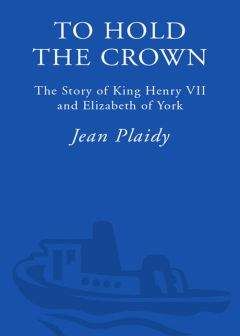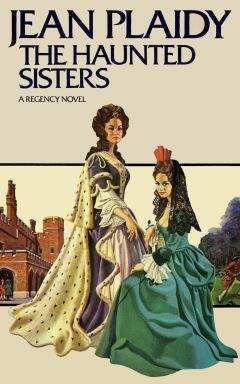Jean Plaidy - The Murder in the Tower: The Story of Frances, Countess of Essex
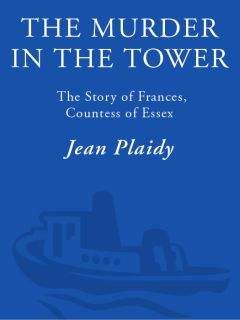
Скачивание начинается... Если скачивание не началось автоматически, пожалуйста нажмите на эту ссылку.
Жалоба
Напишите нам, и мы в срочном порядке примем меры.
Описание книги "The Murder in the Tower: The Story of Frances, Countess of Essex"
Описание и краткое содержание "The Murder in the Tower: The Story of Frances, Countess of Essex" читать бесплатно онлайн.
He almost forgot the unpleasant news he had to give, for Raleigh must be prepared. Not yet, he told himself. Let us enjoy this hour together first.
And later the sailor became the historian and explained to Henry how he was progressing with the history of the world which he was writing; and when he talked of the Spaniards the fire of hatred shone from his eyes.
Henry knew something of political intrigue and he believed that it was largely due to Spain that his friend was a prisoner. Spain hated Sir Walter Raleigh and was uneasy while such a man was free to roam the seas. How different life in England had been under the Queen. Elizabeth had defied Spain; James, loathing the very thought of conflict, wished to placate that country. He wanted to be at peace, to read the books he loved, to pamper his young men; the only battles he enjoyed were verbal ones.
Men such as Raleigh were no longer Court favorites as they had been in the old Queen’s day.
James had known, even before Elizabeth’s death, that Raleigh was against his accession and had him marked down for an enemy. Raleigh had plenty of them in England; it was inevitable for one who had so enjoyed the Queen’s favor and at one time had been her leading man. He had risen to the peak of power; it was natural that many should long to see him fall to the depths of humiliation.
His great fault was his impetuosity, coupled with his arrogance. He had believed that he might do what others dared not. When he had seduced Bess Throgmorton he had lost the Queen’s favor, because she could not endure that he should pay attention to any woman but herself. And a scandal that had been, with Bess pregnant and that other Bess, the all-powerful Gloriana, sending for him and insisting that he right the wrong he had committed and make an honest woman of her namesake.
And his Bessie had been a good wife, always beside him in his misfortune. Their son Walter was a fine boy and little Carew had been born in the Tower, for Bess had her apartments there with him that she might look after him as she swore his servants could not; and there she planned indefatigably to bring about his release.
He told Henry now that he was fortunate … for a prisoner, as he led the way on to the walk along the wall, which he was allowed to use in order to enjoy a little fresh air and exercise.
“How many prisoners enjoy such a privilege?” he asked. And Henry knew that he was eager to show him his new experiments in the hut at the end of the walk which he had been allowed to use for his scientific work.
Inside the hut was a bench on which were several substances in tubes and bottles.
“I’m working on an elixir of life,” he told the Prince. “If I perfect it, it may well be that people will be living many more years than they do at present.”
“You should have a fine mansion in which to work—not a hut,” said Henry.
“This serves its purpose. My remedies are becoming well known.”
“The Queen said that she had heard your balsam of Guiana was excellent.”
“I am honored. That balsam is much admired. Only yesterday the Countess of Beaumont, walking in the Tower, saw me on my walk and asked me to send her some.”
“Oh, you should be free. It is so wrong that my father should keep you here.”
“Hush! You speak treason. Why, my Prince, one little word can turn a free man into a prisoner. It is well to remember it. Tell me, what of the new beauty?”
“Carr?”
“I hear he is most handsome and struts about the Court in fine feathers.”
“He is most sumptuously clad now.”
“And the King delights in him. Well, the way seems smooth for him. A rich wife, I’ll warrant, who can bring him great estates and a great title…. Is aught wrong?”
“There is something I have to tell you, Sir Walter.”
“It disturbs you. Do not tell it.”
“But I must. I came to tell it.”
“And is it so bad then that it must be thrust aside?”
Henry nodded. “It is very bad. Walter, do you care very much for Sherborne Castle?”
Sir Walter had turned slightly pale though this was scarcely noticeable, so bronzed was he.
When he spoke, his voice was harsh. “Sherborne Castle? Why, that and my land about it is almost all I have left. I have consoled myself that if, by a royal whim, it should be decided that my turn has come to walk out to Tower Hill, Sherborne Castle and my lands will prevent my wife and sons from becoming beggars.”
Henry looked appealingly up at this man whom he so admired; then making a great effort he said: “My father had decided that Carr must have a great estate. He has offered him Sherborne Castle.”
Sir Walter did not speak; he went to the door of the hut and stood for some seconds on the Walk, staring at the gray walls and battlements.
Henry came out to stand beside him.
“If he had never come to Court, if there had not been an accident in the tiltyard—” Henry began.
Then Raleigh turned to smile at him.
“And if I had not been born, I should not be standing here now. Dear boy, do not say, If this and If that. Because that is life. I am robbed of my possessions. But remember this: I have already suffered a greater loss. My freedom. Yet I continue to live and work.”
Then they went together along the Walk, into the upper chamber of the Bloody Tower.
Never to either of them had it seemed so hopeless a prison.
THE CHILD BRIDE
Thomas Howard, Earl of Suffolk, had taken time off from Court to visit his country estates, and he had a very special reason for doing so. Thomas Howard, like most of the members of his family, was a very ambitious man; they regarded themselves as the leading family and secretly believed themselves to be as royal as the Tudors and Stuarts. In the past many of them had not hesitated to make this known—to their cost. Suffolk believed he had learned wisdom through the misfortunes of his ancestors; his own father had gone to the scaffold because he had plotted to marry Mary Queen of Scots, and with such an example in the family, Suffolk had no intention of acting so foolishly.
His wife, Catherine, was with him; she did not care for life in the country but she was ready enough to be there on this occasion.
They sat together in the gracious room with the mullioned windows overlooking the parklands; and the expression on their faces showed a certain smugness. This expression was visible on the face of their companion, another member of the Howard family—in fact one might say the head of the House. This was Henry Howard, Earl of Northampton.
Northampton, a man well advanced in years, for he was nearer seventy than sixty, was at this time one of the most powerful men in the country. He had been playing the intricate game of politics so long that he performed with great skill, and in spite of his age he had no intention of relinquishing one small part of his power if he could avoid it.
Being a secret Catholic he greatly desired to bring Catholicism back to England, and his plan for doing this was to arrange a marriage between Prince Henry and the Infanta of Spain. Never for one moment was he insensible of the danger of his position. He had seen his elder brother lose his head; that made him very careful of his own.
Now, at his nephew’s home, he was on a very different mission; a pleasant, domestic one; but everything in the life of the Earl of Northampton, as was the case with his nephew Suffolk and his wife, had some political implication.
Northampton was saying: “This marriage will prove advantageous to us all. James is in favor of it, and while the Scot is a lumbering boor of a fellow, one must not lose sight of the fact that he happens to wear the crown.”
“He is anxious to do honor to any relation of Essex. No doubt he feels remorse because his predecessor, after pampering that young man, allowed his enemies to lop off his head.”
“Oh, the old Queen had to surround herself with handsome men whom she imagined were in love with her, but there were never two she favored so much as Dudley and Essex. The boy is a pleasant youngster. The union will be good for us all.”
“I have met young Robert. He shows promise. My only regret is that the children are so young.”
“What is it—Fourteen the boy—and the girl?”
“Frances is twelve,” said Lady Suffolk.
“Well she can go back to her lessons while young Robert goes abroad to complete his education. There’ll be no question of the consummation yet. I should like to see the child. It is time she was told of her good fortune.”
“I will send for her.”
A few minutes later Frances Howard came into the room. Approaching the group she stopped some little distance from them and dropped a deep curtsy, daintily spreading her blue skirts as she did so. Her gown became her well, but she was so beautiful that nothing could have detracted from her looks. Her long golden hair fell in curls to her waist; her skin was delicate in texture and color; her blue eyes large and darkly lashed.
Northampton thought: This is not merely a pretty child. This is a beauty.
“Frances,” said her father, “your great-uncle has come from Court to bring you good news.”
Frances turned hopefully toward Northampton. There was nothing shy in her manner, a fact which half pleased, half annoyed Northampton.
“Come here, child,” he said.
She stood before him waiting while he peered into that oval face seeking some imperfection. He found none.
“How would you like to go to Court?”
“More than anything in the world,” she answered fervently, and her eyes sparkled.
“And what do you think they would want with a child like you at Court?”
“I do not know, Great-Uncle, but I am waiting to hear.”
Was she pert? He was not sure.
“Whether or not Frances Howard was at Court would give little concern, I’ll warrant.”
“Yet Frances Howard is to go to Court, Great-Uncle.”
“Your are fortunate to have a father, mother and great-uncle who have your welfare at heart.”
“Yes, Great-Uncle.”
“The fact is—we have a husband for you.”
“A husband … for me! Oh, where is he?”
“Do you think I carry husbands around in my pocket, child?”
“I have heard it said that the Earl of Northampton is capable of anything, sir.”
Yes, she was pert; but sharp of wit. What did she need—a place at Court, money lavished on her, or a whipping? He would discover, and whatever she deserved she should have.
Northampton saw that Lady Suffolk was trying not to smile. She should be careful. Her reputation was none too good. It was said that she took advantage of her husband’s Court posts and accepted bribes for certain services. The woman’s morals were not too sound either; and she spent a fortune on her clothes and jewels.
Northampton decided to ignore the girl’s comments, telling himself that perhaps he was inviting them.
“You are to have a wedding, child, at Court. The King himself is interested in your bridegroom and wishes to see an alliance between his House and ours.”
“May I know his name, sir?”
“Robert Devereux, Earl of Essex.”
“An Earl. How old is he?”
“Your own age, child … or as near as makes no difference. Your mother tells me you are twelve. Robert is fourteen.”
“Fourteen and an Earl already!”
“His father has been dead some years.”
“His father lost his head, I believe,” said Frances. “I have heard of the Earl of Essex.”
“It is an accident which happens now and then in the best of families,” murmured Northampton.
“The better the family, the more frequently,” put in Lady Suffolk. “A fact, daughter, which we must all bear in mind.”
“I shall remember,” said Frances.
“I trust you will be grateful to your family for arranging such a good marriage for you,” went on Northampton.
“Is it such a good match?” the girl asked.
“Do you doubt it, Frances?” cried her mother.
“Well, Mother, I have always been taught that there is only one family good enough to mate with the Howards: the royal family.”
Northampton smiled grimly at her parents. “This girl is but twelve, you say?”
“I remember well enough the day she was born,” said Lady Suffolk. “Although I must say that bearing children had become rather a habit with me since I married Suffolk. Seven boys and three girls—not a bad tally, Uncle?”
“The Howards could always fill their cradles. They were not like the Tudors—a barren lot. But this child has a ready answer.” He turned to Frances. “You have a tongue, girl.”
“Why, yes.” She immediately put it out and the expression on her face implied that she enjoyed the gesture.
“Guard it well,” he told her. “I sense a certain waywardness in it. When you go to Court you must not speak with the freedom you employ here in the country.”
“I understand, Great-Uncle.”
“Now, you must prepare yourself for your wedding.”
“Yes, Frances,” her mother put in, “we shall have to start at once on your trousseau. You must be worthy of the Earl of Essex.”
“Fine cloths! Jewels!” cried Frances, clasping her hands together. “How I love them!”
Northampton thought the parents should have had more control over the girl. He now desired her to leave them. He had seen her, assured himself that they had a little beauty who would be ripe for marriage in a year or so; and that was good enough.
He waved his hand and her father said: “You may leave us now, Frances.”
“Yes, Father,” said the girl; but she hesitated.
“Well?” said Northampton.
“When shall I leave for Court?”
“As soon as your wardrobe is ready,” answered her mother.
“We shall lose no time. The King himself is eager to see you married.”
“I wonder why—” began Frances.
But Northampton interrupted impatiently. “It is not for you to wonder, girl, but to obey your parents. I believe I heard your father tell you you might leave us now.”
Frances demurely lowered her eyes, swept another curtsy and blithely left her elders.
In her own chamber, Frances called together three of her favorite maids. They were well-bred girls who were more like friends than servants, and their parents were delighted for them to be brought up in the household of the Earl of Suffolk, who was a man of influence at Court and held among other offices, that of Lord Chamberlain of the King’s Household. These three were not more than a year or so older than Frances; but by reason of her rank and personality she completely dominated them.
“Listen,” she demanded. “It is true—what we suspected. My parents are here because I am to be married. My great-uncle himself deemed it necessary to tell me.”
Then she recounted in detail the interview which had just taken place, coloring it a little to make herself a trifle more audacious than she had been, taking the part of the Earl of Northampton and Frances Howard alternately.
“Mistress Frances!” cried one of the girls. “You’ll be the death of me. And did you, in truth, put your tongue out at my lord?”
Подписывайтесь на наши страницы в социальных сетях.
Будьте в курсе последних книжных новинок, комментируйте, обсуждайте. Мы ждём Вас!
Похожие книги на "The Murder in the Tower: The Story of Frances, Countess of Essex"
Книги похожие на "The Murder in the Tower: The Story of Frances, Countess of Essex" читать онлайн или скачать бесплатно полные версии.
Мы рекомендуем Вам зарегистрироваться либо войти на сайт под своим именем.
Отзывы о "Jean Plaidy - The Murder in the Tower: The Story of Frances, Countess of Essex"
Отзывы читателей о книге "The Murder in the Tower: The Story of Frances, Countess of Essex", комментарии и мнения людей о произведении.





